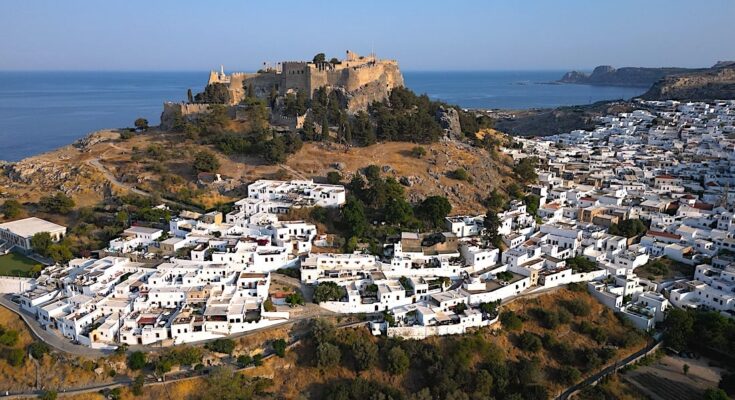Greece can help diaspora tourism by investing in the desire of expatriate Greeks to travel to their country of origin which often comes up against significant difficulties that they face when they want to book their holidays in their homeland.
By Dr. Konstantinos Marinakos*
There is a dominant tendency, in recent years, on the part of Greeks in the diaspora to remain connected to their homeland or even to return to it. In fact, many members of the Greek diaspora communities perceive making a trip to the land of their ancestors as a once-in-a-lifetime experience, while some consider the journey back to their place of origin as an annual pilgrimage.
Often the Greek expatriate travels with the main purpose of “visiting relatives and friends”, searching for roots, “participating in festivals or celebrations” and strengthening/reviving national and cultural identity”.
An important motivation is in some cases the “use of healthcare services” in the country of origin, an important factor of attraction due to a common medical culture, availability of time “for the time they are at home”, communication in the mother tongue, second medical opinion, quality and affordability or dissatisfaction with the existing system in their country of permanent residence.
So it is not new that every year the Greeks abroad return to their homeland to see family, relatives and friends but also to enjoy their holidays in familiar lands.
Difficulties encountered for diaspora tourism in Greece
However, this great desire of Greeks in the diaspora to travel to their country of origin often comes up against significant difficulties that they face when they want to book their holidays in their homeland, to bring in addition to their family, their friends, their relatives and so on. Difficulties that are not focused so much on the cost but on the facilitation of the Greek expatriate to come to Greece more times a year.
Until now, very few have focused their interest on this market, which, although small, can be proven to contribute the most to the local economy.
We must not forget that “there is another Greece outside the borders” may sound exaggerated, but it is to a large extent true.
More than 5,000,000 citizens of Greek origin live outside the Greek borders, scattered in 140 countries around the world. The third great wave of immigration that the country has experienced may not have the dynamics of the previous two (the first at the beginning of the last century and the second after the Second World War), but it significantly strengthens this second Greece.
In this new dynamic and upward trend of “diaspora tourists”, the offer should be able to respond with quick reflexes, innovative services and digital technology. It is time to organize and produce new innovative services for these special segments of the market on the part of travel agents and the tourism offer in general, adequately satisfying their modern demands arising from the desire of Greeks and Philhellenes abroad to take holidays in Greece.
Greek abroad needs someone special to organize his trip
The Greek abroad needs someone special to organize his trip based on his needs, which, among other services, includes excursions within the country. Controlling the cost of the trip is important, however, what matters most is that the traveler knows in advance where he will stay, how he will move and what excursions he can do. It is necessary to create a targeted thematic campaign so that Greeks abroad can bring their foreign relatives, foreign friends and colleagues with them, resulting in the creation of new perspectives for Greek tourism.
More and more governments around the world have begun to recognize the role of their expatriate populations in their national economy and are willing to welcome them, proposing actions to attract them both as investors and as tourists.
They are based on studies that prove that this highly specialized market, although with the lowest costs compared to other markets, contributes the most to the local economy, lengthens the tourist season, puts less touristic destinations on the travel map and becomes the best ambassador of the tourism product of his homeland.
In addition, in recent decades, with the help of relevant legislation, Greek universities have opened up to the world, developing international collaborations and increasing their appeal to students, professors and researchers around the world.
At this level, the Greek Diaspora, with its strong presence in university institutions and scientific centers around the world, with its perennially strong interest in Education and with its genuine willingness to contribute to the development of our country, can play a crucial role in the extroversion of the Higher Educational Institutions of Greece and to be an important advantage and means for achieving the goal of preserving, strengthening and further spreading Greek culture and Greekness.
*Dr. Mr. Marinakos, is Associate Professor of Tourism Management at the University of West Attica, President of the Peloponnese Tourism Organization and Vice-President of the Panhellenic Hotel Association



